Vowel Recognition Normal Worksheets for Ages 3-7
12 filtered results
-
From - To
Introduce your child to the world of vowels with our Vowel Recognition Normal Worksheets designed for ages 3-7. These engaging worksheets help young learners identify, differentiate, and pronounce vowels through fun and interactive activities. Tailored to age-specific developmental milestones, each worksheet strengthens foundational literacy skills essential for reading and writing. Colorful images and simple exercises make learning vowels enjoyable, enhancing phonemic awareness and boosting confidence. Perfect for at-home practice or classroom reinforcement, our worksheets provide the tools needed for your child’s lifelong learning journey. Download now and watch your little one transform into a budding reader!
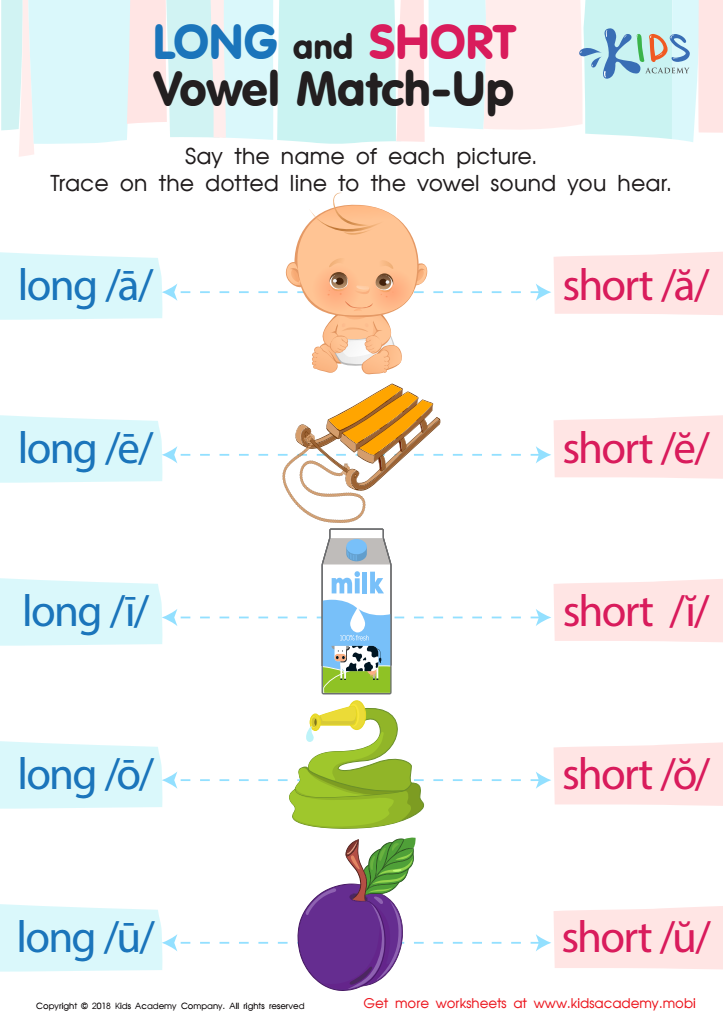

Long and Short Vowel Match up Reading Worksheet


Let's Check Long Vowels: Assessment Worksheet
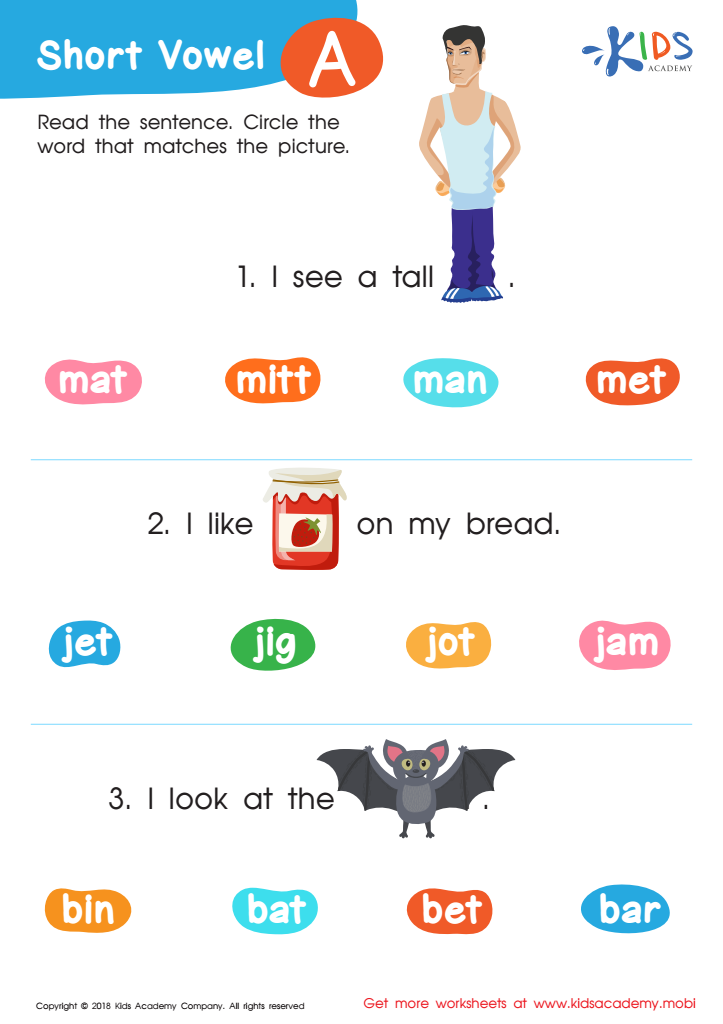

Short Vowel /a/ Worksheet


Short Vowels /e/, /i/, and /u/ Worksheet
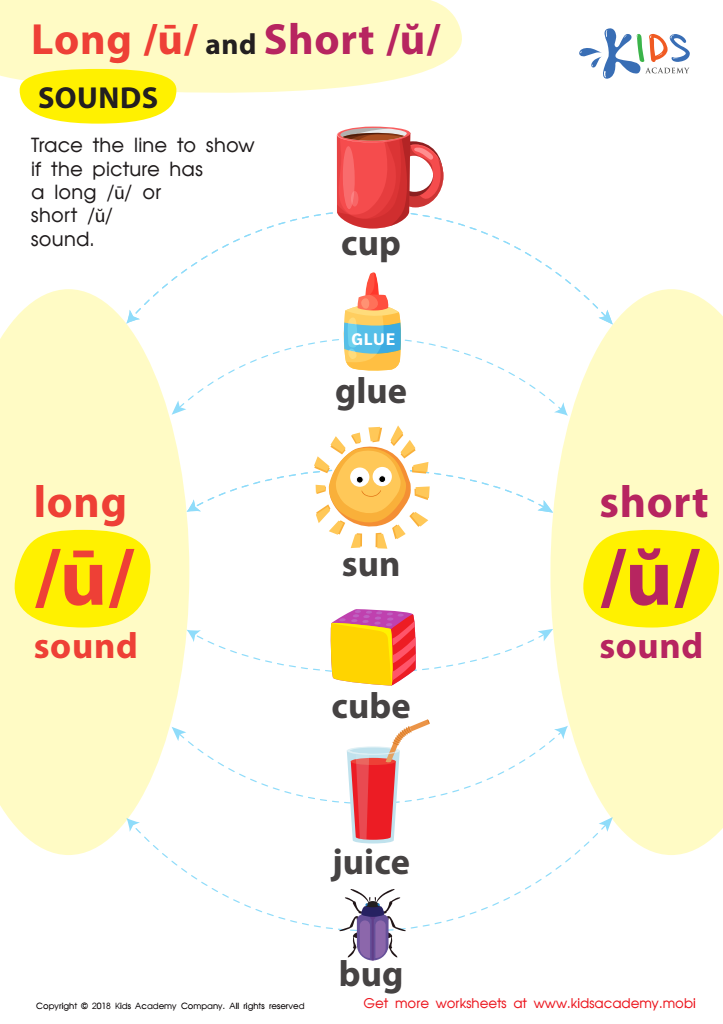

Reading: Long U and Short U Sounds Worksheet


Long Vowel Maze /o/ and /i/ Worksheet


Short Vowel Eggs Worksheet
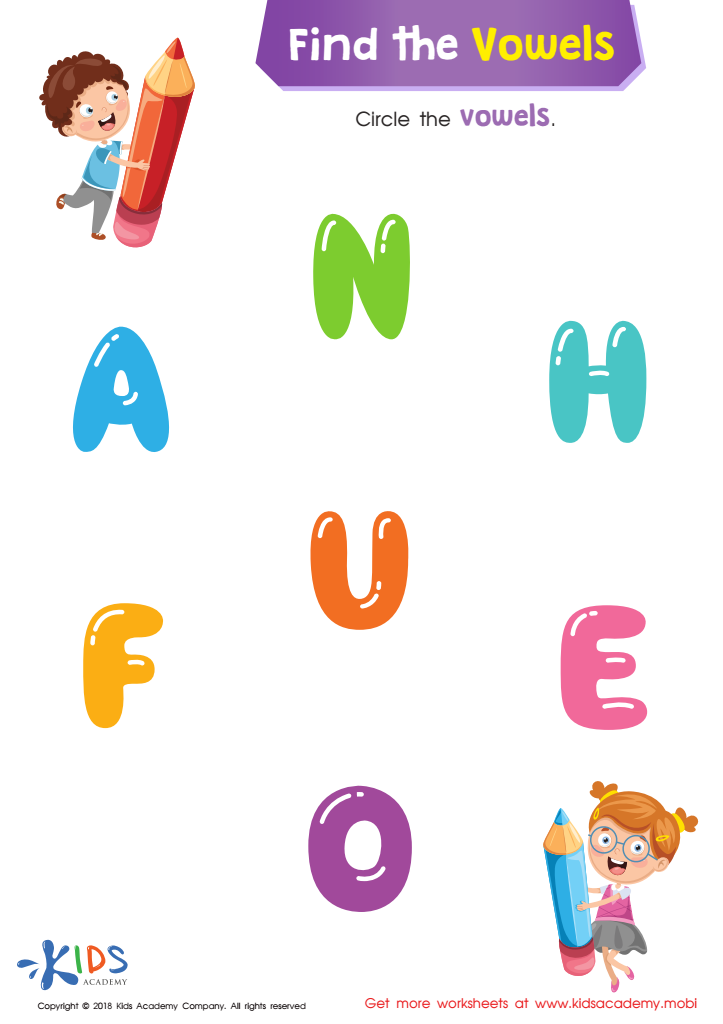

Find the Vowels Reading Worksheet
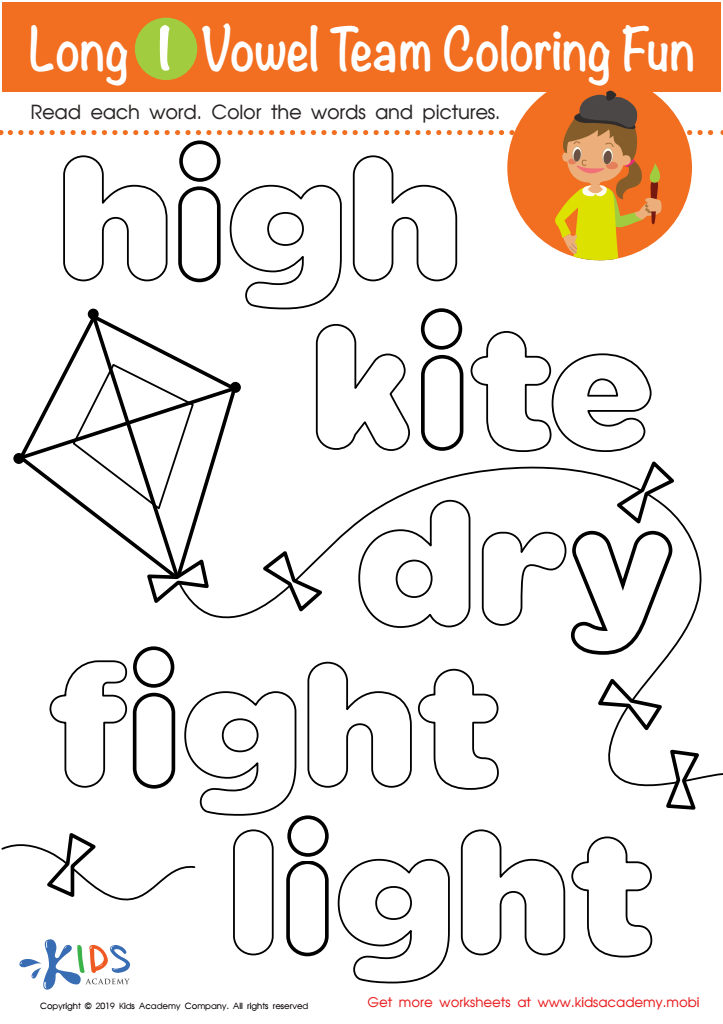

Long I Vowel Team Coloring Worksheet
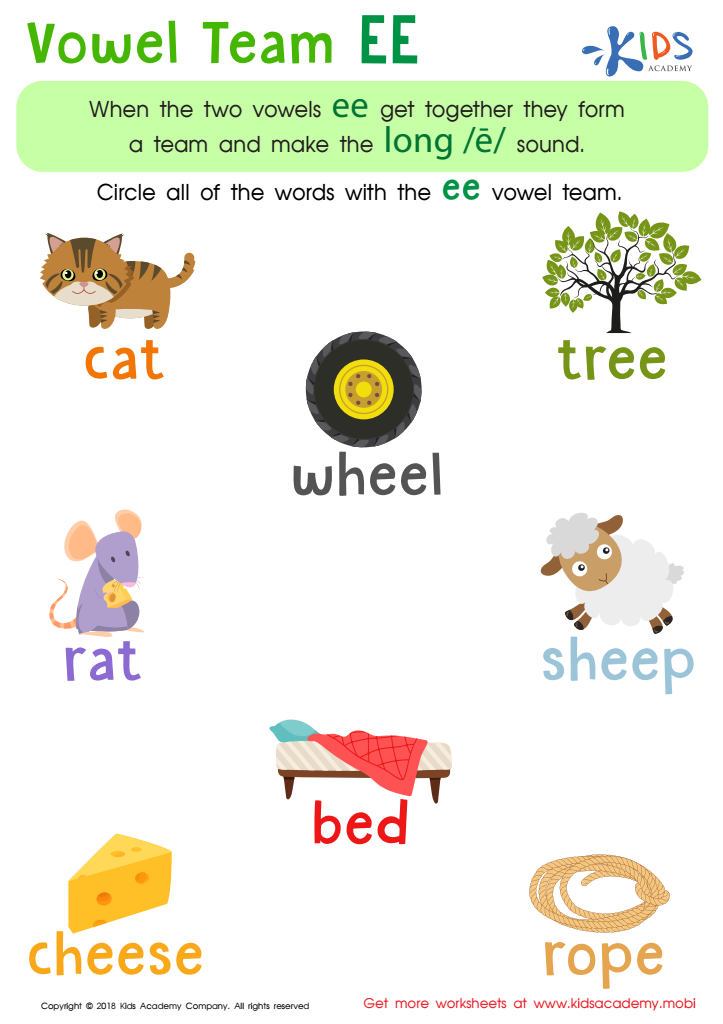

Reading: Vowel Team EE Worksheet
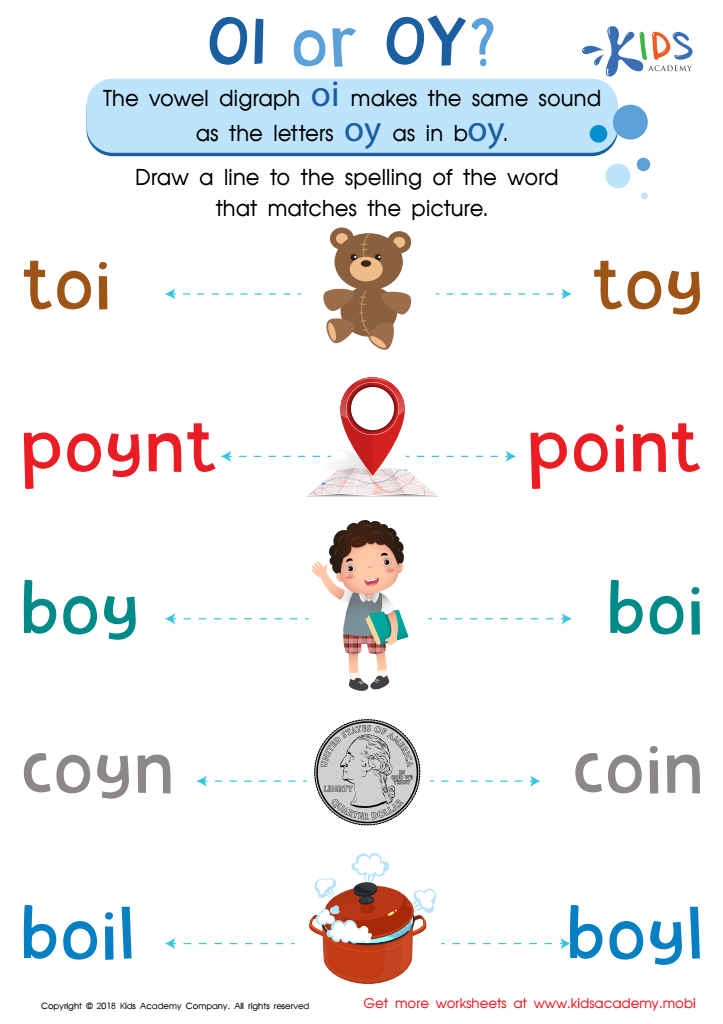

Reading: OI and OY Worksheet


Long and Short Vowel Sentences: Assessment Worksheet
Vowel recognition is crucial for young children’s literacy development, particularly between the ages of 3 and 7. During these formative years, children transition from recognizing sounds to forming words, and vowels play a vital role in this journey. Vowel sounds are the foundation of many words and are integral to phonemic awareness—a critical skill for successful reading. Research shows that children who have strong phonemic awareness, including vowel recognition, are more likely to become proficient readers.
For parents and teachers, fostering vowel recognition helps children decode words, enhancing their reading fluency and comprehension. When a child can easily identify and pronounce vowel sounds, they can blend these sounds with consonants to form word patterns and eventually read more complex text with confidence.
Additionally, solid vowel recognition assists in spelling and writing. Children who understand the variability and consistency of vowel sounds can spell words more accurately and express their thoughts more clearly in writing.
Moreover, early mastery of these skills sets a positive trajectory in a child’s academic career, boosting self-esteem, and fostering a love for reading. Therefore, parents and teachers should actively engage children in vowel-focused activities, such as singing vowel songs, reading vowel-rich books, and playing phonetic games to strengthen these essential skills.
 Assign to My Students
Assign to My Students















